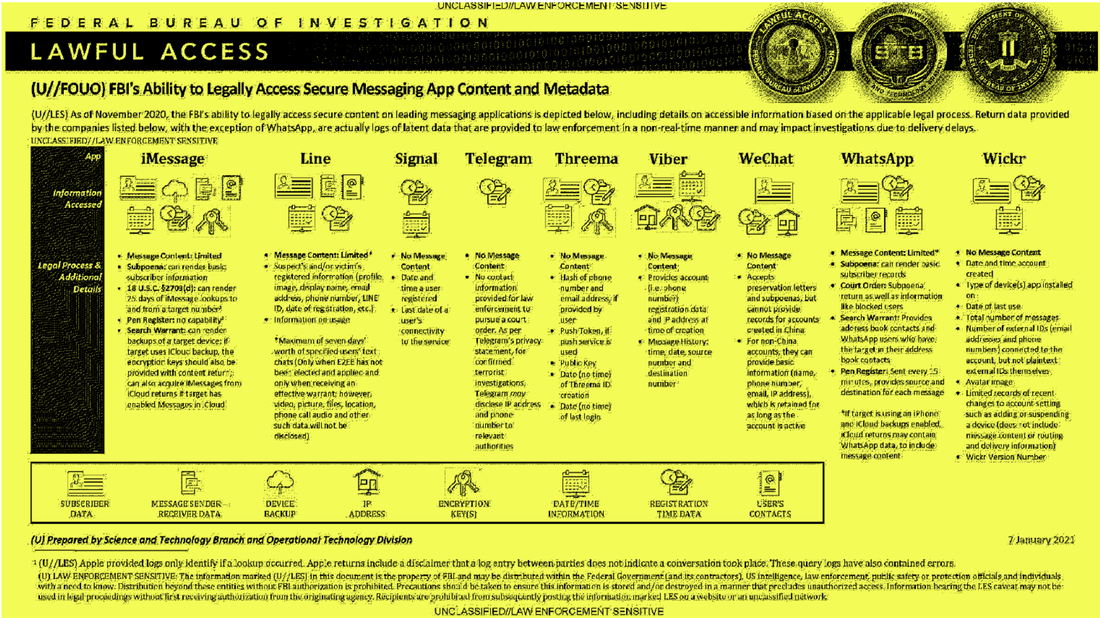|
It’s comforting to look at the little green or blue tile on the screen of your smartphone and realize that you have access to messaging apps that offer secure, end-to-end encryption. Billions of people use Apple’s iMessage, as well as Signal, Viber, WhatsApp, WeChat, and other messaging services to keep their voice and email conversations private.
But to what extent can you be sure that your communications, despite the assurances of these companies, will not be surveilled? Thanks to Property of the People, which specializes in using Freedom of Information Act requests to ferret out government documents, we now have a chart for FBI trainees (hat tip to journalist Catalin Cimpanu of The Record as well) that helpfully sets out exactly how much protection you get with each encrypted service. The FBI document, dating to early 2021, shows that with Apple iMessage, the government can gain limited access to content information. Content in iMessage, as with WhatsApp, can be accessed on backups on iCloud, but only if encryption keys are provided. With Signal, message content cannot be accessed (as far as we can know). The government can learn the date and time a Signal user registered the account and last used the account. In recent years, the Department of Justice and Apple have tangled in very public battles over the efforts to force the company to hand over the keys to unlocking its phones. We can see in this FBI chart the government remains deeply interested in breaking this type of encryption. There are other chinks in encryption armor. Ars Technica reports that if the recipient of a WhatsApp message “flags” it for review, it will be referred to Facebook/Meta (which owns this service). That message is then batched with four previous messages in that thread for review by Facebook for illegal activities. Overall, these messaging apps offer reasonable protection against hackers and a degree of protection against government snooping. The bottom line: encrypted messaging apps are a good way to enjoy enhanced security for sensitive communications. As with most digital activities, however, security is always a relative concept, never an absolute. Comments are closed.
|
Categories
All
|


 RSS Feed
RSS Feed